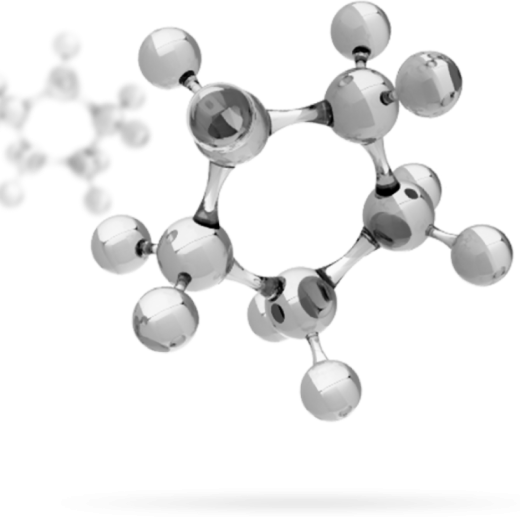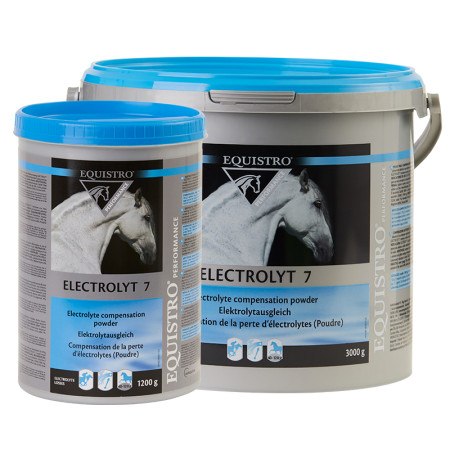
Chloride
Sources
Fresh grass and even hay and other forages normally contain enough chloride to supplement the horse's daily requirements (without any work intensity). The ordinary first-choice source of chloride and natrium intake in horses are salt-lick stones or electrlyte powder formulations.
Daily requirements
Green forage and hay predominantly contain 6g Cl per kg dry matter. Even with limited feed intake (1.5kg dry matter/100kg BW/day), 80mg/kg BW/day of chloride is ingested via grass and forage, which corresponds to the recommended daily chloride requirement for horses.
Deficiency
Chloride deficiency primarily occurs as a result of increased chloride loss, e.g. due to heavy sweat loss, diarrhea, lesions in the gastrointestinal mucosa or kidney dysfunction.
As the release of chloride via sweat is almost twice as high as that of sodium, this electrolyte is the first to experience a bottleneck.
Symptoms of chloride deficiency include muscle cramps (diaphragmatic flutter), cardiac arrhythmia and an increased pH value in the blood.
Excess
An oversupply of chloride in horses is very rare and can be detected quite conclusively via the chloride level in the blood.
Important to know
- As the horse's organism has no possibility to store electrolytes within the body, they need to be supplemented especially in cases of heavy losses (e.g. sweeating, diarrhea)
- Sweat losses from 5 liters upwards require the supplementation of electrolytes to compensate heavy losses and prevent severe symptoms of deficiency (e.g., muscle cramps, cardiac arrhythmia)
- Due to an inverse osmotic gradient in dehydrated horses, it is important when supplementing electrolytes that they are provided to the horse before they drink water or together with water

